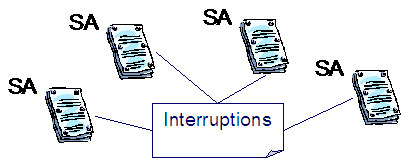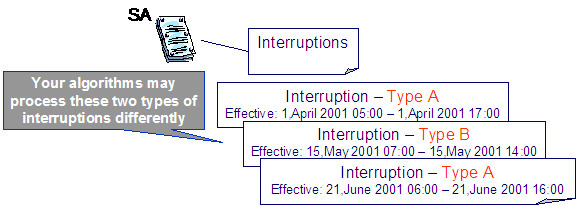A Contract Option Has Events
A contract option must be defined for each special option on a given rate. The contract option is linked to every service agreement eligible for this option.

The option may be related to a given service agreement or may be linked to many service agreements.

Refer to Contract Option Maintenance for more information about creating contract options and refer to Service Agreement - Contract Option for more information about linking contract options to service agreements.
Each contract option contains a collection of contract option events. The events are the individual instances of the special option. Each event indicates its effective period. A given contract option may define different types of events. For example, perhaps you have several types of interruptions that should cause different overrides to occur. It is the responsibility of your data derivation algorithms and/or your rate algorithms to know how to process these events for a customer who may have contract options.

Refer to Contract Option Event Maintenance for more information about creating contract option events.
The following are some examples of algorithms that may process contract option events:
- You may have a classic TOU map creation algorithm that creates override TOU map data for the period defined on a contract option event. This override map may define different time-of-use codes for a certain time period, where different prices are applicable or may alter the time period definitions for this special time periods. The standard TOU pricing rate component would then apply the appropriate prices for this override time period.
- You may have a TOU pricing rate component that only applies a charge if contract option events exist for billing period. For example, it may calculate a special charge based on whether a customer reduced their demand during a specific period.
For more examples, refer to Interval Billing Examples.
